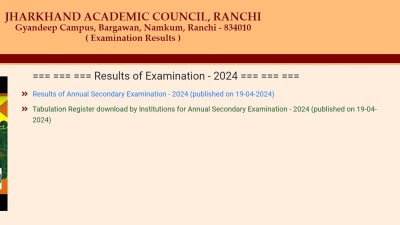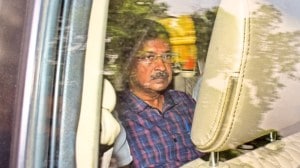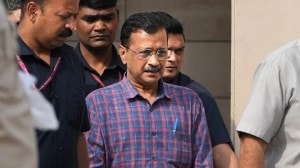- India
- International
JNU is one of India’s great universities. Its autonomy must be nurtured and replicated
Last year, a consultant came to meet me. He was commissioned to give a report on how to build globally eminent universities and since JNU had done it in my days, he wanted the “formula”. There isn’t one: A great university is built with autonomy and accountability.
 The name of the game is to build many more JNUs and to nurture the mother JNU, says Alagh. (Illustration: C R Sasikumar)
The name of the game is to build many more JNUs and to nurture the mother JNU, says Alagh. (Illustration: C R Sasikumar)
Instead of destroying the one great university we have, we should realise what a great university JNU is and focus on building many more such centres of learning. My country has been kind to me. Returning with a doctoral degree and after teaching at the University of Pennsylvania, “the ivy’st of the ivys”, I worked for a couple of years at IIM-Calcutta.
When I returned to mainstream academia, I joined a new research institute in Western India. I was an adviser at the Planning Commission, heading its powerful Perspective Planning Division — setting agricultural and industrial prices — and later member of the commission, and a minister. You name it, I did it, on deputation from my academic nest. But my best stint in Delhi was as vice-chancellor JNU.
I was in Valencia, Spain, arguing with a global group that we in India also have globally competitive industrial clusters that were discovered in Italy by Piore and Sable. P K Laheri, then industries commissioner in Gujarat, knocked on my room at night and said, “Delhi wants to get in touch with you”. The secretary, MHRD, told me I was selected as VC of JNU. Will I accept? Of course I will.
On December 5, 1992, I landed up at the small, lovely VC’s Lodge and after getting the windows opened, I went to my office. At lunch time, dispensing with security, I walked to a hostel, picked up my plate and sat down to eat. It turned out that the students union in 1984, when the police was called in to the campus, had passed a resolution that they would break the VC’s leg if he came to a hostel. Once I ate, they came to me and said, isn’t the food terrible? No, the dal, roti and a subzi is good. But the water is bad. Why? Isn’t it filtered? No filter. The university engineer was called. He said they break the cooler. They promised not to. Give us two coolers. I said you get one. Look after it and will get the second.
Soon, another practice started: I was expected to go to each hostel, every semester, or face an agitation. Then they would call me at night to chair after-dinner meetings. Here, the outliers would be invited: Lal Krishna Advani, Comrade Vinod Mishra, who had just accepted that non-violent politics was also an acceptable tactic, younger Hurriyat leaders and the like. A meeting had to continue until the problem was “solved”. In other words, the last question had been answered, say by 2 am. A visiting Japanese scholar described the JNU Students Union as one of the most democratic societies in the world.

Express Editorial | Power to the goon: The mob violence on JNU students is a chronicle foretold
Soon after I joined, the union executive went on strike and took out a dharna. I went to them and they were chanting Kabir’s dohas to make fun of the administration. I said, why not protest after class hours? VC you want to save the system: we want to destroy it. I want you to be effective in whatever you want to do. The system won’t fall if you bunk classes. Don’t give us lectures VC, we want water in the hostels. It is your responsibility. Of course but give me time.
Get lost, VC.
We were getting less water. Why don’t we dig for groundwater? The wells dry up.
The Rohillas had retreated from these hills because of water shortage. I was not a Rohilla and had no intention of retreating. Satellite imagery showed us the spots to dig but the water is 300 feet deep. No worries. Dig deep tubewells. I come from a state where temple bells ring if you get water at 300 feet.
It is a special place. The IIMs and IITs also select students after national tests, but here it’s a wide area, ranging from Indian languages to biotechnology. My rector, Asis Datta, was to patent the first Indian gene map. Thousands of young people apply and we took in only 900 and 100 more from other countries. She would be a landless labourer’s daughter doing Japanese and would not have the money to pay the hostel food bill. Despite the subsidy of free cooking fuel and cooks, the wardens want their money for they have to buy the veggies. Two thousand-plus meals a day. We would find ways of funding the kids until the scholarships started coming. My wife would check my savings bank account.
Then there came a day of reckoning. The Academic Council was to meet to discuss a Ford grant for the SIS and some other controversial matters. The president of the students union met me at night at the VC’s lodge and said we won’t let the meeting take place. I told him, you are a member of the council, come and object. We will set up a committee with you in it. No Sir. In the morning, I was told they have blocked the Entrance. I called the Dean. Call the police! No. Why, they will do what we say. Listen I am a fauji’s son. Our boys will throw a stone at them and they will go berserk. Finally, I decided to appeal to their idealism. When they stopped me, I sat down on satyagraha. Soon, over a hundred teachers were there. I write to the chancellor, saying I have handed over charge and asked the finance officer to deduct my pay when I am in protest. They gave up the next day, not able to stand the moral pressure.
In the jubilee year, I wanted to celebrate in style. G Parthasarthy, the first VC and P N Haksar did the honours. The students union said we are against celebrations and other capitalist practices. I negotiated with them. They agreed to protest and withdraw.
As a minister, I went to a forum meeting in Hong Kong. A young TV broadcaster from the Australian Broadcasting Corporation interviewed me. She said, don’t you recognise me? I was joint secretary of JNUSU, removed for sloganeering at the jubilee function. I said you were not wearing patented shoes. I was a jholawala, minister.
Then there was the day when I was having my morning chai after my jog in the JNU hill and reading the paper, I started laughing. My wife asked, what’s the joke. I told her of a news item that a JNU boy was asked about a problem and he said we will solve it. The correspondent said but DU has given up and this kid said, “We are JNU, the best university in India”. I told her we will make it, because they have decided. Sure enough, we were named the first Indian university to make the top 100 globally and I became a part of a select global rectors group. We met every quarter to plan out higher education in the world.
Last year, a consultant came to meet me. He was commissioned to give a report on how to build globally eminent universities and since JNU had done it in my days, he wanted the “formula”. There isn’t one: A great university is built with autonomy and accountability. Not only that of the students, teachers and karmacharis, but of the administration, the VC and MHRD.
The youth are idealistic. They want change. It is good that they do. Otherwise, we may not have discovered fire.
Engineers and managers encourage improvement based on the present. But great universities have to conjure a better future. The name of the game is to build many more JNUs and to nurture the mother JNU.
This article first appeared in the print edition on January 9, 2020 under the title ‘Notes from a VC’s diary’. The writer was vice-chancellor of JNU and has been a Union minister.
EXPRESS OPINION
More Explained
Apr 19: Latest News
- 01
- 02
- 03
- 04
- 05









































